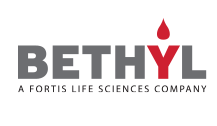Rabbit anti-APC IHC Antibody

Catalog #
APC
Human
IHC
Rabbit
Polyclonal
Whole IgG
Between 1 and 50
IgG
Unconjugated
Antigen Affinity Purified
Product Details
Human
Guinea_pig,
Mouse,
Horse,
Zebra_finch,
Dog,
Chicken,
Pig,
Rabbit,
X_tropicalis,
Zebrafish,
Bovine,
Monkey,
Rat
Human
2 - 8 °C
1 year from date of receipt
Adenomatosis polyposis coli (APC) is a tumor suppressor gene found to be mutated in most colon cancers and is the cause of familial adenomatous polyposis (FAP), an autosomal dominant disease that results in a predisposition to malignant colon cancer. APC has been shown to be involved in cell differentiation, migration, proliferation and adhesion. One function of APC involves its role as a scaffolding protein that regulates the phosphorylation and degradation of beta-catenin, a transcriptional regulator in the WNT signaling pathway. Additionally, APC has been found to be important in the regulation of microtubule arrays and mitotic spindle formation.
Alternate Names
adenomatosis polyposis coli tumor suppressor; adenomatous polyposis coli (APC); adenomatous polyposis coli protein; BTPS2; deleted in polyposis 2.5; DP2; DP2.5; DP3; epididymis secretory sperm binding protein; GS; PPP1R46; Protein APC; protein phosphatase 1, regulatory subunit 46; truncated adenomatosis polyposis coli; WNT signaling pathway regulator
Applications

